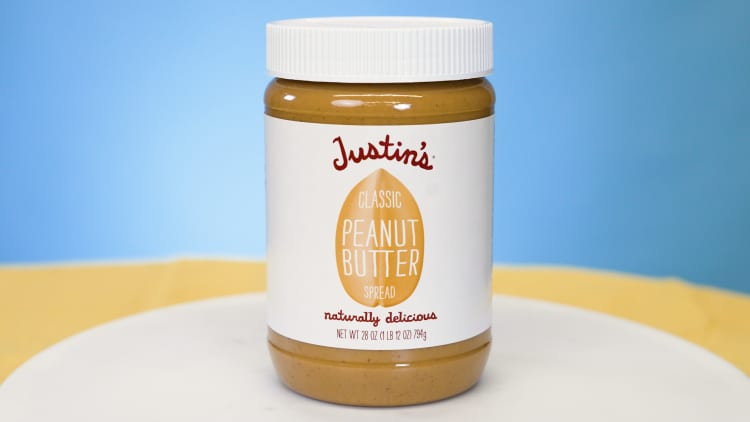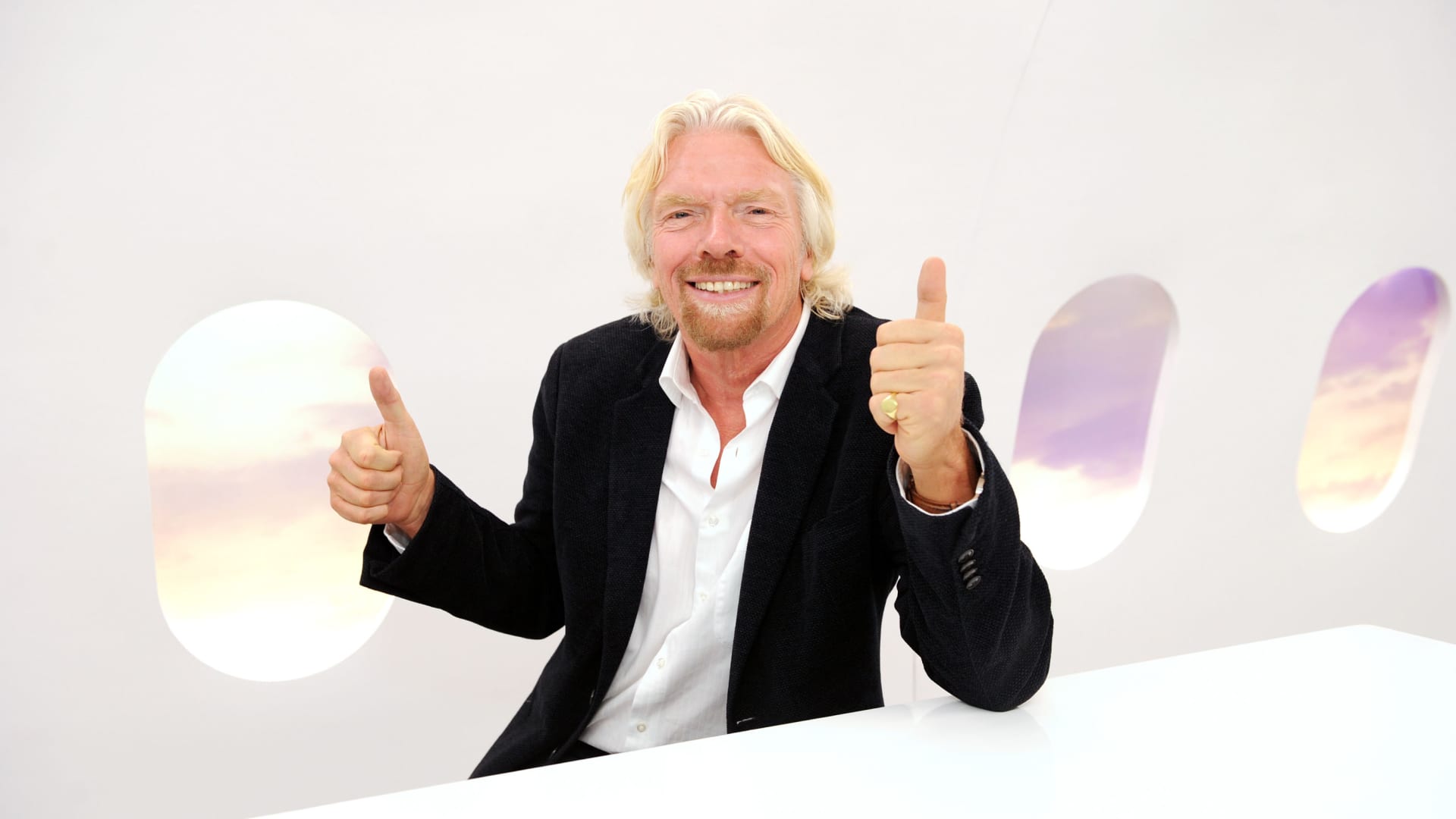This story is part of CNBC Make It’s The Moment series, where highly successful people reveal the critical moment that changed the trajectory of their lives and careers, discussing what drove them to make the leap into the unknown.
Richard Branson is a thrill-seeker. He’s traveled to space in his own rocket ship and crossed oceans in a hot air balloon.
So if you ask him for one of the hardest decisions he’s ever had to make, you might get a surprising answer: a moment when he opted to “play it safe.”
He’s referring to selling record label Virgin Records to Thorn EMI for nearly $1 billion in 1992. The deal made sense from a business perspective but the idea of selling one of his first ventures — one that started as a brick-and-mortar record shop in London in 1971 — left him in tears, he says.
“It was definitely a sad day,” Branson tells CNBC Make It. “I remember running down the street with tears streaming down my face, past a sign that said, ‘Richard sells for a billion.'”
Branson needed the money to focus on a newer venture, Virgin Atlantic. The upstart airline needed resources for a legal battle — one it eventually won, as he details in his new audiobook memoir, “Losing and Finding My Virginity” — over an alleged smear campaign perpetrated by British Airways.
He had two choices: Sell his record label or risk the failure of his airline. Emotionally, selling Virgin Records was like casting away a piece of himself, says Branson — but it was established and successful enough to keep thriving under new ownership.
Meanwhile, Virgin Atlantic’s failure would’ve marred his reputation and threatened the expansion of his business empire, which today ranges from telecommunications to spaceflight. Virgin Group is largely responsible for Branson’s estimated net worth of $2.5 billion, according to Forbes.
The billionaire’s fondness for Virgin Records still endures: He reportedly considered buying the brand back as recently as 2012, though a deal didn’t come to fruition.
Here, Branson discusses the difficulty of letting go of one beloved venture to boost another, how that decision helped shape the future of Virgin Group and why you should balance instinct with caution when seizing any big opportunity.
CNBC Make It: How did you make the decision to sell Virgin Records? What was going through your head?
Branson: Virgin Records was the biggest independent record company in the world. We’d just signed The Rolling Stones and Janet Jackson. It was going unbelievably well.
Virgin Atlantic was a child at school who was being bullied. I had to really turn my attention to the child that was being bullied. What I decided was: If I sold Virgin Records, all the people’s jobs would be secure. I could then use that money to build and protect Virgin Atlantic.
Richard Branson publicizes the sale of Virgin Records to Thorn EMI in June 1992, London, England.
Richard Baker | In Pictures | Getty Images
Sadly, sometimes in life, you’ve got to make tough decisions. That was the right decision to make at the time.
Of course, the record industry then went through turmoil, and everybody thought we’d been very clever. Now, I hear our music playing everywhere — it’s come back with a vengeance — but at the time, it was the right thing to do, difficult though it was.
Did you consider trying to keep both, or would that have caused Virgin Atlantic to fail?
I don’t think we’ll ever know, to be honest. Obviously, it would have been lovely to have kept both, and we may well have survived by keeping both.
But on occasions, you’ve just got to play it safe — and I don’t normally play it safe.
I just felt that I needed to protect the downside, [which] was seeing a new child, Virgin Atlantic, disappearing. And I wasn’t going to let British Airways beat us.
So, is it fair to say the Virgin Group would look very different today if you hadn’t made that decision?
Yes. With the resources from the [sale of the] record company, we moved into trains, mobile phones, cruise companies and fitness clubs. There were literally tens of thousands of jobs created using the resources from the record company.
I don’t think I would have gone to space on my own spaceship if I hadn’t made that decision.
I’m not complaining about any decision I’ve made in the past. I think we’ve been fortunate. Every year of my life has been a roller-coaster ride. That’s been rewarding and fascinating.
How do you weigh emotion against money when making a business decision? Do you struggle with those decisions today, when you sell or spin off other Virgin brands?
I think that when people sell their company, they can sometimes feel slightly empty. It’s important to know what they want to do, having sold it. It’s important that they’ve got something else to get their teeth into, either socially or business-wise, because there can be quite an empty feeling for people, even despite having money in their bank account.
What we love doing is creating things. We will always keep 100% of the top company, the Virgin Group. Then we have subsidiary companies, some of which we’ve floated, some of which we’ve kept private, some of which we may have sold quite a lot of.
That means I can still do bold things, like going into space or starting a cruise line. By having the subsidiary companies, we can bring in other shareholders and this money comes up to the top to enable us to still be entrepreneurial.
When you make a risky decision, how do you prepare for both your best-case and worst-case scenarios?
Protecting the downside is very important. [Launching] Virgin Atlantic 40 years ago is a very good example.
I had an instinct that if we created the best-quality airline flying across the Atlantic, it would survive. I knew it was very risky. I personally have said that the best way of becoming a millionaire is to start off as a billionaire, and go into the airline industry.
So in case my instinct was wrong, I negotiated the right to hand [Virgin’s first plane] back to Boeing at the end of the first year. The most the airline was actually going to cost — apart from my reputation, which is obviously very important — was roughly a year’s profits at Virgin Records.
This interview has been edited and condensed for clarity.
Want to make extra money outside of your day job? Sign up for CNBC’s new online course How to Earn Passive Income Online to learn about common passive income streams, tips to get started and real-life success stories.


